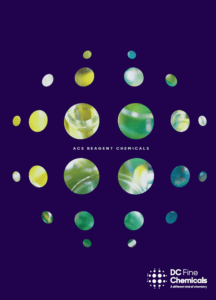Understanding ACS Reagent Chemicals: Setting the Standard in Laboratories
Â
Chemistry, as a vast and intricate field, relies heavily on precise tools and materials to achieve accurate results. One of the most critical components in this domain is the concept of chemical grades, which go beyond mere labels of purity—they represent the suitability of a reagent for specific applications. Whether it's for food science or life-saving medical treatments, these grades play a pivotal role in determining the presence of potential contaminants, the risk of metal impurities, and whether bioactive substances might interfere with the desired outcome.
The establishment of these standards isn’t arbitrary; it’s rooted in extensive research and detailed monographs. These documents outline rigorous benchmarks for a chemical's properties, from its physical state to its molecular purity. Organizations like the United States Pharmacopeia and the American Chemical Society (ACS) champion these standards, emphasizing the necessity of quality control in scientific endeavors.
Among these standards, ACS Reagent Chemicals stand out as a cornerstone for ensuring quality and consistency across laboratories globally. Their role in defining what constitutes a reliable and precise chemical product cannot be overstated.
Â
Defining ACS Reagent Chemicals
The Committee on Analytical Reagents of the American Chemical Society (ACS) has meticulously crafted specifications for reagents and reference materials intended for use in analytical chemistry. These reagents are designed to meet the demands of general analytical work, offering a level of purity necessary for conducting accurate chemical analyses or reactions1.
Standard-grade reference materials, on the other hand, cater specifically to the preparation of solutions used in calibration and quality assurance processes1. Even though ACS provides comprehensive specifications, there may still be instances where analysts need to purify reagents further for specialized tasks. Over the years, the ACS has played an instrumental role in advancing the quality of chemicals used in research labs worldwide, contributing significantly to the success of countless scientific projects2.
Before the formation of the Committee on Analytical Reagents (CAR), researchers faced immense challenges in verifying the purity of chemical compounds. Since the publication of the first chemical standard in 1925, the mission has always been to make it easier for chemists to confirm the authenticity and quality of their materials2.
Â

Â
ACS Reagent Chemicals in Pharmaceuticals
The United States Pharmacopoeia–National Formulary (USP–NF) plays a vital role in testing drugs throughout their lifecycle, from development to production3. These tests, enforced by agencies like the Food & Drug Administration (FDA), rely heavily on ACS Reagent Grade chemicals, which are considered the "gold standard" in analytical reagents and reference materials.
In an ever-evolving industry like pharmaceuticals, staying ahead means having access to the most up-to-date resources. ACS Reagent Chemicals, which are regularly updated and easily accessible online, are indispensable for maintaining compliance and efficiency in drug development.
Â
Why Choose ACS Grade Chemicals?
The quality of chemicals used in experiments can dramatically influence the reliability and reproducibility of results. ACS grade chemicals, with their stringent quality standards, offer several key advantages:
- Consistency and Reliability: ACS grade chemicals ensure high purity, which translates to precise and consistent experimental outcomes. This minimizes errors and saves valuable time and resources.
- Safety: High-purity chemicals reduce the chances of contamination and accidents, creating a safer working environment for lab personnel.
- Regulatory Compliance: Using ACS grade chemicals helps laboratories adhere to industry standards and regulations, particularly important in sectors like pharmaceuticals and food production where compliance is non-negotiable.
- Economic Efficiency: Although they might initially cost more, the long-term benefits include fewer failed experiments, reduced retesting costs, and minimized risks of accidents—ultimately leading to cost savings.
Â
DC Fine Chemicals: Customizing Quality for Every Lab Need
Chemical grades are more than just indicators of quality; they reflect tailored standards for specific applications. Some manufacturers create their own unique grades and standards, often clearly explaining their definitions to users. These grades provide a guide for producing consistent reagents, while understanding the differences between them can help identify suitable alternatives for particular situations.
At DC Fine Chemicals, we recognize the significance of using high-quality reagents. We proudly offer a diverse range of products that meet the ACS Reagent Chemicals standard. Our commitment is to deliver products that surpass customer expectations in terms of quality and performance.
If you’re curious about our ACS quality products or have any questions, please don’t hesitate to reach out to us.
Â
Â
References:
- Tyner, T. (Chair), & Francis, J. (Secretary). (2017). Part 1, Introduction and Definitions. ACS Committee on Analytical Reagents. eISBN: 9780841230460.
- Sweedler, J. V. (2018). A Resource for Our Reagents: ACS Reagent Chemicals. Chem., 90(9), 5511. https://doi.org/10.1021/acs.analchem.8b01729
- Expedite pharmaceutical Development. ACS reagent chemicals is a trust reference for analytical reagents.
Â
Â
Written by Sherry Cacay, Marketing Manager of DC Fine Chemicals
Â
Explore Our ACS Reagent Chemicals

Â
Â
Â
Â
Sports Food Palatinose,High Quality Palatinose,Natural Palatinose Powder
Qingdao Bailong Huichuang Bio-tech Co., Ltd. , https://www.sdblcycn.com